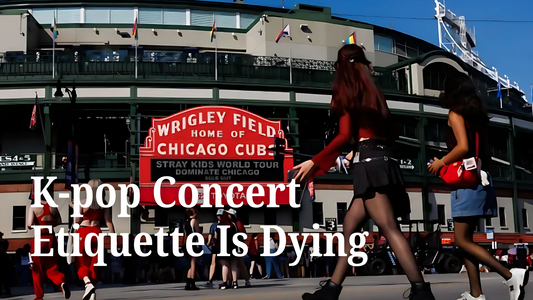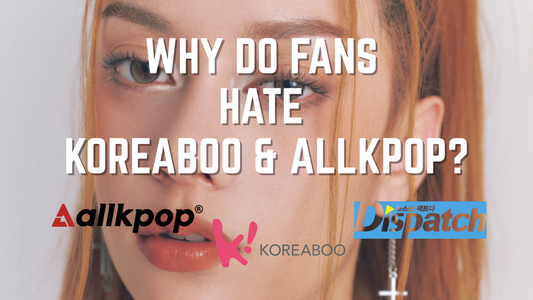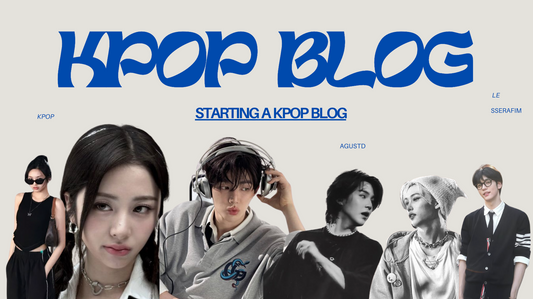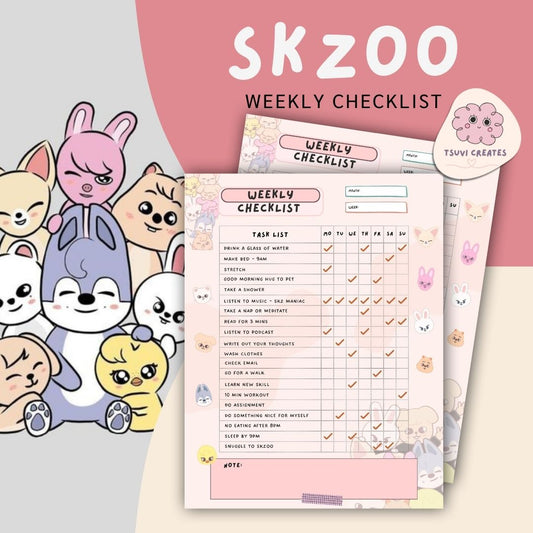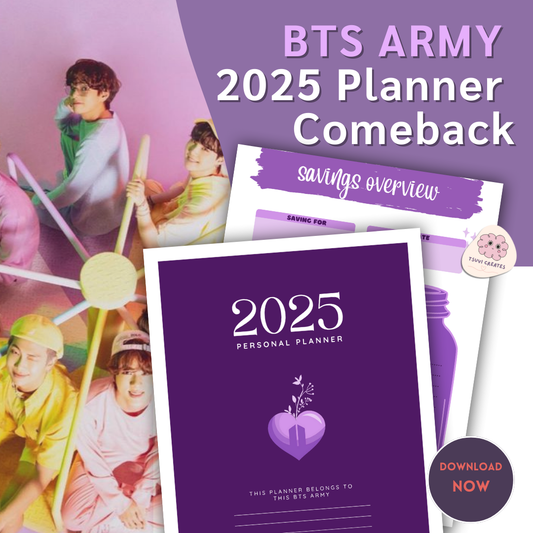So, you know how people always talking about K-pop and its fandoms, right? Well, lately, I’ve been thinking about something and thats whether international K-pop fans are losing their sense of respect and boundaries? Like, seriously, is the whole fandom space getting more toxic with each generation? I know it might sound a bit dramatic, but it’s something that’s been on my mind, especially with how massive K-pop has become around the world.

This question got me reflecting on how things were back in the early days, when fandom culture within the international space felt... different. Fans still loved their idols just as much, but there was this unspoken respect and distance between the two that made things feel healthier. With this blog we'll be stepping back and looking at what international K-pop fandoms were like in those early days, and why that foundation of respect was so crucial.
Reminiscing the Early Days
Okay, so let me take you back to the early days of K-pop fandoms. Back then, I feel like respect and boundaries were core values in the global fandom community. People loved their idols, but there was this unspoken rule that you admired from a distance. Fans supported their faves through official channels like buying albums, attending concerts, and sending fan letters (yes, actual physical letters!). And because there wasn’t this 24/7 access to idols like we have today, fans cherished what little content they got.

Fan letter service
It was simpler times, honestly. Without the constant pressure of social media, there was a natural barrier between fans and idols, which I think really helped maintain that sense of respect. You knew your place as a fan, you enjoyed the music, maybe screamed a little too hard at concerts, but at the end of the day, you didn’t feel entitled to know every detail of an idol’s personal life. There was this understanding that idols were there to perform and entertain, and fans respected their private lives as separate from their public personas.
Of course, there were some exceptions, even back then. While it was rare, there were instances where fans crossed the line and invaded an idol's privacy. One of the most well-known examples was with TVXQ (DBSK) in the mid-2000s. TVXQ was one of the biggest groups at the time, and some fans (which we call sasaengs), would go to extreme lengths to follow them, including showing up at their dorms or tracking their personal schedules. While it wasn’t a common occurrence compared to today, it did happen, but the scale of these incidents was nowhere near what we see now.

Kpop Sasaengs The Dangers of Obsessive Fans
Fancafes: Quality Over Quantity
Back in the day, if you wanted to send a message of support, you wrote a fan letter or joined a fan cafe. Idols would read the letters during fan meetings, and even though the interactions were brief, they were genuine. Fans felt appreciated for their support, and idols didn’t have to worry about someone invading their privacy. Fan culture back then was much more about quality over quantity. There wasn't a need for daily updates to feel connected to your idols. A single live performance, a concert DVD, or a few fan cams would be enough to sustain the fandom for months.

BTS Jimin Fancafe Update on Cafe Daum
Another huge thing back then was that fan cafes were more organized. You had to sign up for official memberships, and these fan clubs were often the ones to plan events, fan projects, and even help organize gifts for idols. It was a more structured and respectful way to interact with idols and the industry as a whole. There were boundaries in place, not just in how fans behaved, but in how fan interactions were facilitated by the industry.

Minhyuk Fancafe Update Hyungwons
But here’s the thing, it wasn’t easy to join these fan cafes. To even be considered, you had to prove that you were a true, dedicated fan. Some fan cafes had tests or quizzes you needed to pass, where they’d ask questions about the group’s discography, history, and even personal facts about the members. It was almost like a rite of passage, and even if you made it into the club, you still had to work your way up to higher tiers to have more direct interactions with the idols. And to top it all up, you had to do all this in Korean. It wasn’t like now, were anyone could just tweet or comment on their posts; you had to earn that privilege over time. And, as hard as it might have been, that exclusivity actually helped maintain respect within the fandoms because you knew you were part of something special.

What's It Like Attending a BTS Concert?
Social Media: Flood of Content
Looking back, I think the respect came naturally because there wasn’t the same level of constant, real-time access that we have now. If you didn’t have instant access to idols’ personal lives, you didn’t expect it. There was more mystery and distance, which made every bit of content you did get feel more valuable. It wasn’t about knowing everything; it was about appreciating what you got and respecting that idols had their own lives beyond the stage.
The absence of social media also meant there was less room for misunderstandings or drama. Fans would focus on the music, performances, and occasional interviews. Without the ability to dissect every tweet or Instagram post, there was simply less fuel for toxicity. Fan interactions were mostly positive and uplifting, and any problems that arose stayed within smaller circles. Fans knew that they didn’t have the right to overstep, and that created a healthier, more respectful fan-idol relationship.

TXT Yeonjun's GGUM receives massive backlash for suggestive choreography
But now, with the flood of content and how easily we can access idols' every move through social media, that sense of appreciation seems to have faded. Instead of cherishing each new performance or release, fans often hyper-focus on mistakes or errors. There’s no longer that wow factor when an idol drops new music or releases a special stage. The focus shifts away from the art itself and more towards nitpicking every little thing, or worse, stirring up unnecessary drama over minor issues. Some fans raise social justice concerns that don’t even relate to the music or performance, distracting from the beauty of the art. It's almost as if the magic that used to come with every comeback has been replaced with this constant pressure to find flaws or create controversy.

Seunghan leaves Riize group fans left unhappy
It’s sad because K-pop has always been about the performance, the visuals, and the music. But with the amount of content being churned out and how easily fans can compare one group to another, the focus has shifted from celebrating the work to tearing it apart. It feels like fans are more concerned with who’s on top, who made a mistake, and who’s “problematic” rather than just enjoying the experience of being a fan.
All in all, the early days of K-pop fandoms were marked by a sense of patience, distance, and respect. Fans didn’t feel the need to know every detail about their idols’ personal lives, and that distance allowed for a healthier fandom culture. It was about the music, the performances, and the shared experiences between fans—not about crossing boundaries or digging into private matters. Back then, even with the occasional privacy breach, fandoms generally understood their place, and idols didn’t feel as suffocated by the intense scrutiny they face today.


